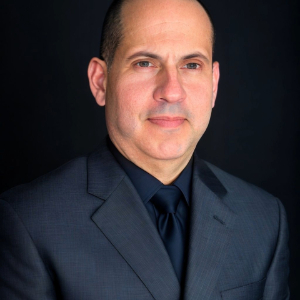
The Augmented Therapist: Why the People We Serve Deserve Better Than Our Limitations
Oct 28, 2025When Current Outcomes Are Measured in Lost Lives, We Have No Right to Settle
There's a conversation happening in therapy offices around the world. A colleague asks with genuine concern: "Is the ultimate goal to create an AI robot therapist substitute?"
But while we debate this question, someone is sitting in early recovery right now, terrified. They've been in treatment before. They've worked hard. They've shown up, done the assignments, been honest. And they've relapsed anyway.
They don't care about our professional anxieties. They want to know: Why can't you help me stay sober?
And the honest answer—the one that should haunt every addiction therapist who takes this work seriously—is that from the vantage point of the current addict, our outcomes are not acceptable.
What "Not Acceptable" Actually Means
Let's be specific about what we're measuring here:
Not acceptable to the man who's been in treatment three times, worked with excellent therapists, and still can't stay sober for six months. He does everything right. He shows up to group. He journals. He calls his sponsor. And on Tuesday—always Tuesday, though no one has noticed the pattern—something breaks.
Not acceptable to the woman who's spent $150,000 at the best residential programs in the country and relapses within weeks of discharge. She has insight. She understands her trauma. She can articulate her parts. But something in the translation between knowledge and lived reality keeps failing, and neither she nor her therapist can pinpoint what.
Not acceptable to the spouse who's watched their partner attend therapy for two years, doing the work with genuine effort, only to discover another affair. The therapist was skilled. The client was motivated. But the treatment wasn't targeted enough to catch that his "good weeks" always preceded his acting out—a pattern that would have been obvious with data, invisible to memory.
Not acceptable to the families destroyed while we figure out through trial and error what works for this particular person. Not acceptable to the careers lost, the children traumatized, the decades consumed by addiction while we test one protocol, then another, then another.
Not acceptable to the people who don't survive. The ones whose suicide happens because treatment wasn't precise enough, fast enough, or targeted enough. Who died while we were operating with 20% of the information we needed.
This is not about therapist performance. This is about the fact that people are suffering and dying while we work with inadequate tools, and we have a moral obligation to do better.
Not because we're failing as clinicians. But because the people we serve deserve better than our limitations.
The Invisible Information Gap
Here's what happens in the current treatment model, from the client's perspective:
They experience their week in high resolution. The 3 AM anxiety spiral. The moment of choice in the parking lot. The texture of shame that shifts day by day. The subtle trigger when their boss uses a particular tone. The way Friday afternoons feel different than Friday mornings. The fact that phone calls with their mother create a specific vulnerability window that lasts exactly 36 hours.
They report their week in low resolution. They come to session and compress 168 hours into "I had a rough week." Not because they're hiding things—though sometimes they are—but because human memory is selective, and in the moment, they don't recognize what's significant.
The therapist receives fragments. You hear "rough week." You ask good questions. You track what you can. But you're also tracking 20-30 other clients, each with their own trauma histories, relationship patterns, and addiction architectures. You do your best to remember that Client A's father triggers him, that Client B struggles on weekends, that Client C's protector part activates around intimacy.
The client relapse anyway. Not because you failed them. Not because they didn't try. But because neither of you had access to the pattern that would have been obvious with complete data: that Client A relapses within 48 hours of talking to his father—every single time—but the six-day gap between the trigger and the behavior obscures the connection.
The treatment stays generalized. We know that IFS works, that EMDR is effective, that attachment-focused therapy heals. But we don't know why Client A responds brilliantly to metaphor while Client B needs direct psychoeducation, or what specific narrative frame causes Client C's nervous system to feel safe enough to self-regulate.
So we try one approach. If it doesn't work, we try another. And another. And meanwhile, the client is white-knuckling sobriety, wondering why this is so hard for them when it seems to work for others, not knowing that their specific nervous system requires a specific type of intervention that we haven't tried yet because we're guessing.
From the therapist's perspective, this is the best we can do with human memory and weekly check-ins.
From the client's perspective, this is Russian roulette with their life.
What They're Actually Asking For (Even If They Can't Name It)
Every addict who walks into your office is asking the same fundamental questions:
Why do I keep doing this? What specifically triggers me—not addicts in general, but me? What intervention will actually work for my brain, my history, my nervous system? How do I know if I'm about to relapse before it's too late? Can you help me figure this out before I lose everything again?
These are answerable questions. They have always been answerable questions. But until now, we haven't had the infrastructure to answer them with the precision that a life-or-death situation demands.
A surgeon wouldn't operate based on memory and intuition when an MRI is available.
An oncologist wouldn't prescribe chemotherapy based on "general guidelines" when genetic testing could reveal exactly which treatment this specific cancer responds to.
Yet we ask addiction therapists to treat a fatal condition with only their memory, their intuition, and weekly verbal reports from clients whose brains are literally wired to minimize and forget.
Not because we're cavalier about outcomes. But because until now, we haven't had another option.
Enter Clinical Intelligence: Not Replacement, But Revolution
This is what AI-augmented treatment actually offers the suffering addict:
1. Their Reality Gets Seen Completely
Through daily structured check-ins—Kitchen Table parts work, Daily Spiritual Action Plans, end-of-day reviews—the system captures what's actually happening in their life. Not the edited highlight reel they bring to session, but the granular texture of each day.
The client finally has a witness to their full experience. And so does their therapist.
2. Patterns Become Visible Before Relapse Happens
The AI can track correlations that no human brain can hold simultaneously:
- Day of week and urge intensity
- Sleep quality and self-regulation capacity
- Parts activation and relapse risk
- Contact with specific people and vulnerability windows
- Therapist interventions and actual behavior change
When the system notices that this client has activated their protector part in three consecutive daily check-ins, exhibited sleep disruption, and mentioned their father twice—and that historically, this exact constellation predicts relapse within 72 hours—the therapist knows to intervene now, not after the relapse.
From the client's perspective: Someone is finally paying attention to the warning signs I couldn't articulate.
3. Treatment Gets Tailored to Their Specific Architecture
Remember the two clients who both score 9 on the SAST-2? Both meet criteria for sex addiction. But they are completely different animals.
One is under-reporting significantly—you can see it in the ACEs score, the fragmentation indicators, the spending patterns, the physical touch love language. The AI flags the discrepancy and gives the therapist specific places to seek clarification in the assessment, before months are wasted on a treatment plan calibrated to the wrong severity level.
The other legitimately scores 9—moderate severity, but with a specific trauma profile that the data reveals responds better to somatic interventions than cognitive work. Instead of trying cognitive approaches for six months before discovering they don't land, the therapist starts with what's most likely to work for this nervous system.
From the client's perspective: The treatment actually fits me, not some generic protocol.
4. The Therapist Has Superpowers in Service of the Client
When the therapist has a clinical hunch—"I think something is off, I think he's under-reporting, I think there's a connection between his mother wound and this part activation"—they can verify it instantly instead of wondering for weeks if they're on the right track.
When the therapist senses that a specific intervention landed differently than usual, they can check the transcript, review the client's daily work, and see exactly what shifted.
When the therapist needs to understand why this client thrives in individual sessions but shuts down in group, the AI can analyze every group session and surface the pattern: he dissociates specifically when women share about betrayal trauma, which maps precisely to his mother's emotional abuse.
From the client's perspective: My therapist actually knows me—not just the parts I show in session, but the full picture of my reality.
Why This Isn't About Replacing Therapists (It's About Saving Lives)
Let's address the fear directly: "If the AI is this good, why pay for the real thing?"
Because the AI isn't a therapist. And the client doesn't need a robot. They need what they've always needed: a human who can see them, attune to them, believe in them, and love them well.
But "love well" requires knowing them well. And knowing them well requires information that human memory alone cannot hold.
The AI is a microscope that allows the therapist to see what was always there but invisible to the naked eye. The therapist still interprets, attunes, co-regulates, witnesses, and guides. But now they can see more clearly. They can intervene more precisely. They can tailor treatment more accurately.
What AI will never be able to do—and what clients desperately need:
- Presence. The somatic attunement of two nervous systems in a room. The micro-expressions that signal safety. The rupture and repair that teaches the client they are worth staying for.
- Wisdom. The clinical judgment born of ten thousand hours with suffering humans. The intuition about when to push and when to hold. The knowing that comes from having lived and healed.
- Love. Yes, love. The genuine care that says, "I see you. I believe in you. I will not abandon you." The specific form of love this particular nervous system needs to heal—which AI can help identify, but cannot be.
- Moral Witness. The human who reflects back their worth when they cannot see it. Who holds hope when theirs runs out. Who says, "I know you think you're unlovable, but I'm still here, and I'm not leaving."
- Creative Attunement. The perfectly-timed metaphor born in relational contact. The spontaneous intervention that emerges from genuine presence. The repair that happens because two humans are breathing the same air.
From the client's perspective, the question was never "Can a robot replace my therapist?"
The question is: "Can my therapist—with the right tools—finally help me stay sober?"
And now the answer is yes.
The Ethical Imperative
Here's what we know:
Every addict has a story. Every addict needs to repair attachment in their own nuanced way. Some heal through narrative, others through somatic work. Some need confrontation, others need gentleness. Some respond to spiritual frameworks, others to neuroscience.
But we discover these preferences through trial and error, over months, at the cost of multiple relapses.
What if we could know sooner?
What if the data could reveal:
- Which language and stories cause this specific nervous system to re-attune?
- What enables this person to self-regulate brilliantly with one protocol but terribly with another?
- What form of therapeutic "love" this attachment history needs to heal?
- What early warning signs predict this individual's relapse window?
These aren't hypotheticals. These are answerable questions. Questions whose answers could mean the difference between sobriety and relapse, between family preservation and family destruction, between life and death.
We have an ethical obligation to ask them.
And we now have the technology to answer them.
The only question is whether we have the courage to use it.
To the Addict Reading This
If you're someone who's tried treatment before and it didn't work, or didn't work well enough, or didn't work permanently—this is for you.
You are not broken beyond repair. You are not uniquely defective. You don't lack willpower or moral fiber.
You have been trying to heal with a system that was operating with incomplete information about you.
Not because your therapist didn't care. Not because you didn't try hard enough. But because human memory and weekly verbal reports are insufficient tools for the precision your brain requires.
You deserve treatment that can see your full reality. That can identify your specific triggers before you act on them. That can tailor interventions to your unique nervous system. That can help your therapist help you with the accuracy and speed that a life-or-death condition demands.
You deserve a therapist who has superpowers—not to replace their humanity, but to enhance it. To remember everything. To spot every pattern. To verify every hunch. To test every theory. To personalize every intervention.
You deserve outcomes that are acceptable.
Not someday, when the field catches up. But now. While your life still hangs in the balance.
To the Therapist Reading This
You became a therapist to heal people. Not to do administrative work, not to second-guess your memory, not to wonder if you missed something critical.
You show up for your clients with your full heart. You hold their pain. You believe in them when they cannot believe in themselves. You stay when others leave.
And you watch them relapse anyway, and it breaks your heart every time.
Not because you're a bad therapist. But because you're a human therapist operating with human limitations in a field that demands superhuman precision.
The question is not whether AI threatens your role. The question is whether you're willing to use every available tool to improve outcomes for the people who trust you with their lives.
Imagine walking into a session with complete clarity about your client's week—not their edited summary, but the actual texture of their days. Imagine being able to verify your clinical hunches instantly. Imagine discovering that a specific intervention you've been using is 3x more effective with clients who have a particular trauma profile. Imagine catching relapse warning signs three days earlier than intuition alone would allow.
This is not science fiction. This is available now.
The therapists who will shape the future of addiction treatment aren't the ones who fear AI. They're the ones who recognize it as what it actually is: the missing piece that finally allows our clinical wisdom and human compassion to operate at the level our clients' lives demand.
The Future Is Human AND Machine
There is something irreducibly sacred that happens when one human sits with another in their pain. When a therapist attunes to a client's nervous system. When someone feels truly seen, perhaps for the first time.
AI will never replace that. Should never replace that.
But it will make that therapist more effective. More informed. More precise. More able to provide exactly what this specific person needs.
And in a field where every percentage point of improved outcomes means someone's life is transformed—someone's family stays intact, someone's children don't grow up traumatized, someone chooses life over death—we have an ethical obligation to pursue every advantage.
Not despite our humanity, but in service of it.
The current outcomes, from the vantage point of the addict, are not acceptable.
We can do better.
We must do better.
And now, finally, we can.
Welcome to the Era of Treatment That Actually Works
Your clients are waiting.
Their lives are waiting.
Let's give them outcomes they can live with.
Don't miss a beat!
New moves, motivation, and classes delivered to your inbox.
We hate SPAM. We will never sell your information, for any reason.


